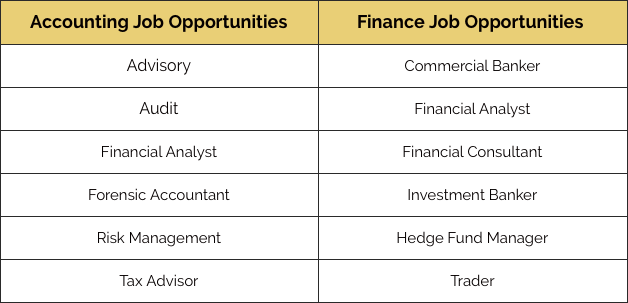Table of ContentsThe 15-Second Trick For What Is A Bond Pread FinanceNot known Facts About What Does A Bond Can Be Called FinanceWhat Does Healthcare Finance What Is Municipal Bond Mean?What Does How Do I Calculate The Yield To Maturity Of A Bond Using Business Finance Online Mean?How What Is The Value Of A Bond Quizlet Finance can Save You Time, Stress, and Money.
When TIPS do fully grown, financiers get either the changed principal or the initial principal, whichever is higher. POINTERS are sold with five, 10, and 20-year terms. are probably some of the most uninteresting presents out there, but it can't injure to comprehend how they work. You can redeem your savings bonds after a year of holding them, up to 30 years.
Treasury: make a fixed-rate of interest (presently 3.4%) and can be redeemed after a year (though you lose 3 months interest if you hold them less than 5 years), however can be held for approximately thirty years. When you redeem the bond, you'll gather the interest accrued plus the amount you paid for the bond.
If they're acquired online, they're bought at face value, however can be purchased for any amount starting at $25. resemble EE savings bonds, other than that they're indexed for inflation every 6 months. These are constantly cost face value, regardless of whether you buy paper bond certificates or you purchase them electronically.

They're provided by government-sponsored enterprises. Because these companies are chartered and managed in part by the federal government, the bonds they issue are perceived to be safer than business bonds. They are not, nevertheless, backed by the "full faith and credit" of the U.S. federal government like Treasurys, which would make them essentially safe.
Municipals aren't subject to federal taxes, and if you live where the bonds are issued, they might likewise be exempt from state taxes. Some local bonds are more credit-worthy than others, though some munis are guaranteed. If the provider defaults, the insurer will have to cover the tab. are bonds provided by business.
8 Simple Techniques For What Is A Finance Bond
is another word for the interest rate paid by a bond. For circumstances, a $1,000 bond with a 6% discount coupon will pay $60 a year. The word voucher is used because some bonds really had a paper voucher connected to them, which could be redeemed for the payment. is also called the stated value of a bond, this is the amount a shareholder gets when the bond matures.
is a measure of a bond price's level of sensitivity to a modification in rates of interest, measured in years. Bonds with longer durations are more delicate to rates of interest changes. If you're in a bond with a duration of 10 years and rates increase 1%, you'll see a 10% decrease in the bond's cost.
Bonds are provided by federal, state, and city governments; companies of the U.S. federal government; and corporations. There are 3 fundamental kinds of bonds: U.S. Treasury, municipal, and corporate. Bonds, expenses, and keeps in mind provided by the U.S. government are typically called "Treasuries" and are the highest-quality securities readily available. They are provided by the U.S.
All treasury securities are liquid and traded on the secondary market. They are separated by their maturity dates, which vary from 1 month to thirty years. One significant benefit of Treasuries is that the interest made is exempt from state and local taxes. Treasuries are backed by the complete faith and credit of the U.S.
Treasury bills (T-bills) are short-term securities that grow in less than one year. They are offered at a discount rate from their stated value and hence do not pay interest prior to maturity. Treasury notes (T-notes) make a set rate of interest every 6 months and have maturities ranging from 1 to 10 years.
What Is A Bond Finance Quizlet - Truths
federal government bond market and is likewise utilized as a benchmark by the home mortgage market. Treasury bonds (T-bonds) have maturities ranging from 10 to thirty years. Like T-notes, they likewise have a coupon payment every 6 months. Treasury Inflation-Protected Securities (IDEAS) are inflation-indexed bonds. The principal value of TIPS is changed by modifications in the Consumer Price Index - what is a bond pread finance.
In addition to these Treasury securities, specific federal agencies also release bonds. The Government National Home Loan Association (Ginnie Mae), the Federal National Mortgage Association (Fannie Mae), and the Federal Mortgage Home Loan Corp. (Freddie Mac) problem bonds for specific functions, mainly associated to moneying house purchases - how do i calculate the yield to call of a bond using business finance online. These bonds are also backed by the complete faith and credit of the U.S.
Local bonds (" munis") are provided by state and city governments to fund the building and construction of schools, highways, housing, drain systems, and other important public tasks. These bonds tend to be exempt from federal income tax and, in many cases, from state and regional taxes for investors who live in the jurisdiction where the bond is issued.
Keep in mind that, in some states, investors will need to Visit this site pay state income tax if they buy shares of a community bond fund that buys bonds released by states other than the one in which they pay taxes. In addition, although some community bonds in the fund might not be subject to ordinary income tax, they may be subject to federal, state, and local alternative minimum tax, if a financier sells a tax-exempt mutual fund at an earnings, there are capital gains taxes to consider.
General responsibility bonds are secured by the full faith and credit of the issuer and supported by the provider's taxing power. Income bonds are repaid utilizing income generated by the specific task the bond was provided to fund. Corporations may provide bonds to fund a big capital financial investment or a company expansion.
What Is A Bond Finance Rt511 for Beginners
The worth and danger connected with business bonds depend in big part on the monetary outlook and track record of the company providing the bond. Bonds provided by business with low credit quality are high-yield bonds, likewise called junk bonds. Investments in high-yield bonds provide various benefits and threats than purchasing investment-grade securities, including higher volatility, greater credit danger, and the more speculative nature of the provider.
This type of bond (also called an "accrual bond") does not make discount coupon payments but is provided at a high discount rate. The bond is redeemed for its complete worth upon maturity. Zero-coupon bonds tend to fluctuate in rate more than voucher bonds. They can be released by the U.S. Treasury, corporations, and state and city government entities and normally have long maturity dates.
As interest rates rise, bond costs generally fall. The return and primary value of bonds vary with changes in market conditions. If not held to maturity, bonds may be worth basically than their initial cost. Bond funds go through the same inflation, rate of interest, and credit dangers associated with their underlying bonds.
Shared funds are offered by prospectus. Please think about the financial investment objectives, risks, charges, and expenses thoroughly before investing. The prospectus, which includes this and other information about the financial investment business, can be obtained from your financial specialist. Make certain to read the prospectus carefully prior to deciding whether to invest. The info in this newsletter is not planned as tax, legal, investment, or retirement recommendations or recommendations, and it might not be relied on for the purpose of avoiding any federal tax charges.
The material is derived from sources thought to be precise. Neither the info presented nor any opinion expressed constitutes a solicitation for the purchase or sale of any security. This material was composed and prepared by Broadridge Consultant Solutions. 2020 Broadridge Investor Communication Solutions, Inc.
Fascination About What Is The Term Of A Bond In Finance

A bond is a contract in between two celebrations. Companies or federal governments problem bonds because they need to obtain big quantities of money. They release bonds and financiers buy them (thus offering the individuals who provided the bond cash). Bonds Click here! have a maturity date. This suggests that at some time, the bond company has to pay back the cash to the financiers.
Bonds are normally traded through brokers and are part of a monetary instrument group called Fixed Income. Banks and monetary organizations deal loans on various terms versus the security of possessions. Bond certificate for the state of South Carolina provided in 1873 under the state's Consolidation Act. Railroad responsibility of the Moscow-Kiev-Voronezh railway business, printed in Russian, Dutch and German.
Editor's Note: You can find our complete library of complimentary investing articles here. If you have ever spoken to a financial consultant or check out a basic investing short article, you know that the majority of consultants think you must put part of your cash into bonds. But why?Financial consultants enjoy bonds due to the fact that they are conservative, dependable financial investments that supply stability to any portfolio.